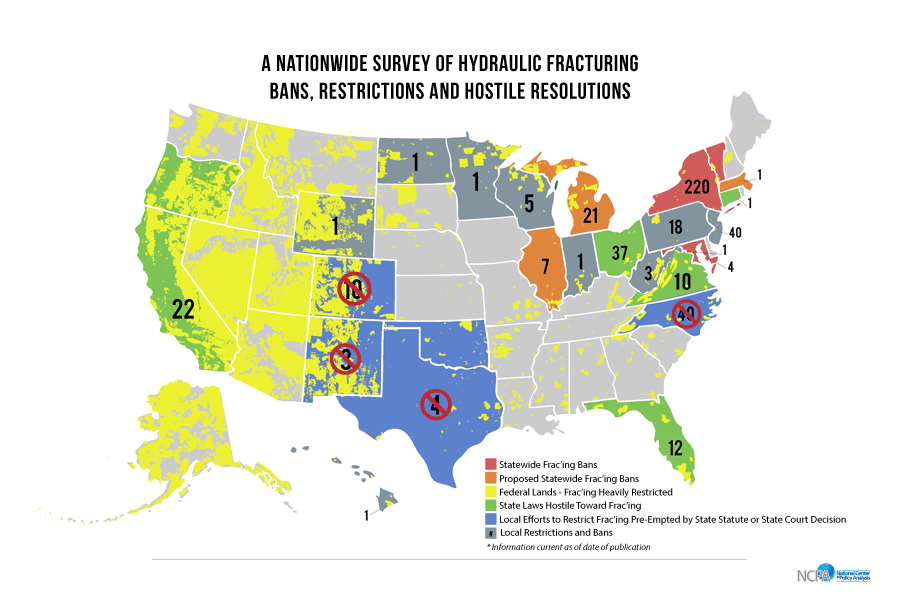America’s Fracking Debate
August 5, 2015 12:00pm by Barry Ritholtz
This content, which contains security-related opinions and/or information, is provided for informational purposes only and should not be relied upon in any manner as professional advice, or an endorsement of any practices, products or services. There can be no guarantees or assurances that the views expressed here will be applicable for any particular facts or circumstances, and should not be relied upon in any manner. You should consult your own advisers as to legal, business, tax, and other related matters concerning any investment. The commentary in this “post” (including any related blog, podcasts, videos, and social media) reflects the personal opinions, viewpoints, and analyses of the Ritholtz Wealth Management employees providing such comments, and should not be regarded the views of Ritholtz Wealth Management LLC. or its respective affiliates or as a description of advisory services provided by Ritholtz Wealth Management or performance returns of any Ritholtz Wealth Management Investments client. References to any securities or digital assets, or performance data, are for illustrative purposes only and do not constitute an investment recommendation or offer to provide investment advisory services. Charts and graphs provided within are for informational purposes solely and should not be relied upon when making any investment decision. Past performance is not indicative of future results. The content speaks only as of the date indicated. Any projections, estimates, forecasts, targets, prospects, and/or opinions expressed in these materials are subject to change without notice and may differ or be contrary to opinions expressed by others. The Compound Media, Inc., an affiliate of Ritholtz Wealth Management, receives payment from various entities for advertisements in affiliated podcasts, blogs and emails. Inclusion of such advertisements does not constitute or imply endorsement, sponsorship or recommendation thereof, or any affiliation therewith, by the Content Creator or by Ritholtz Wealth Management or any of its employees. Investments in securities involve the risk of loss. For additional advertisement disclaimers see here: https://www.ritholtzwealth.com/advertising-disclaimers Please see disclosures here: https://ritholtzwealth.com/blog-disclosures/
What's been said:
Discussions found on the web:Previous Post
The Data


I am an engineer in fields related to fracking and its environmental impacts. We have the technologies in place to do it safely and effectively. The problem is that it requires significant regulation and enforcement to make sure that the frackers do it properly. Many of them have shown that they will cut corners (in some cases illegally) in a variety of ways if given the opportunity.
If the companies have no skin in the game, other than to extract maximum profits during a short production period, then corners will be cut. One solution is to put in place significant up-front trust funds and bonds that give the state the financial wherewithal to step in and fix things if done improperly. This has been in place for a couple of decades now for municipal and hazardous waste landfills and it is just a cost of doing business. The outcome now is that you don’t see landfills permitted in the past 20 years in the news at all because it is in everybody’s best interest to do them properly.
The dangerous part about this is that the current political environment is profoundly against regulation. There are something like 250 Republicans running for President, but only one opinion: Every single one of them thinks there are too many environmental regulations, and would eliminate all regulations on fracking if they could. It will be hard for them to even have a debate: They agree on everything.
Deep down inside, these are smart people who really want what is best for the country. But the people writing the biggest checks want maximum profits in a short production period. And you don’t write checks that big unless you want something in return.
That is why there are so many bans in towns and states that aren’t reliant on energy production for tax revenue. It eliminates the battle over regulation details since the activity simply doesn’t exist. That is why Texas passed a law banning land use bans by local municipalities on fracking – they didn’t want local decision-making since local governments are often more difficult to buy than state politicians, since the local populace is usually very vested in the local activities and can easily organize to defeat somebody in an election.
What debate?
81% of Americans live in cities, most of the rest in suburbs.
Nobody (in terms of percent population and priority of concern versus facebook status) gives a rip.